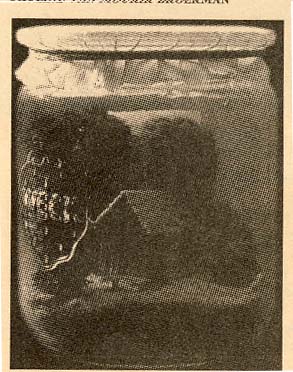@ Home Mediamatic Conference
The second Doors Of Perception conference '@Home', organised by the Dutch Design Institute and the everactive technoculture magazine 'Mediamatic', took the notion of the home as its central theme. Looking at the design challenges of multimedia and computer aided systems and environments, the conference this year focused on domestic space and the very flexible notion of 'home'. It therefore didn't need to regulate itself solely to the network homesteaders and cybergurus, who made sure the audience were duly informed about the merits of living a nomadic existence with solely an email address, portable phone and powerbook to their name. Architects were also invited to address the very complex question of what home is and how it comes into being. Apart from a few 'ooops' moments (crucial CDrom concept courtesy of Mediamatic editor Willem Velthoven, the all important 'step back') where yet another delegate felt the burning need to talk about his/her children, this led to a diverse series of papers where, above all, the importance of the integration of virtual and real was stressed.

A few speakers, including John Perry Barlow, Electronic Frontier Foundation member and lyricist for the Grateful Dead, David Chaum, the Managing Director of Digicash in Amsterdam (a firm pioneering electronic cash payment systems) and Manuel de Landa, computer artist and author of 'War in the age of Intelligent Machines', were invited to discuss the social and economic implications of Saturday morning's announcement of the successful initiation of the 'Digicash' scheme and the release of 1.000.000 'cyberbucks' seen alternatively as the anonymous method of payment which will succeed in making cyberspace and its digital economy a properly functioning system or that which will enable the most crooked crooks to succeed at tax evasion, and also endanger the lives of lawabiding citizens through undetectable terrorist campaigns.
Although perhaps not so clearly connected to the conference, Manuel de Landa's paper. concerning models for artificial intelligence was very interesting, not only in relation to the construction of intelligent architectures within cyberspace, but also in relation to the Digicash announcement. Speaking about systems and models for artificial intelligence, de Landa asserted the importance of our observation of and modelling from emergent systems (bottomup) instead of hierarchical ones (topdown). Using primarily his friends, the birds, not ants this time, he described the development of knowledge not so much as slow storage and dataretrieval (as in - bird maps whole surrounding area and bases its actions on that comprehensive knowledge), but as a dynamic integration of knowledge gained from simple 'affordance' tests, which are acted upon (as in - bird tests each surface for affordance it gives, using its whole body as cognitive device) accordingly depending on the kind of 'affordance/resistance' that surface or object has lent it. Seemingly basic, this model - if applied to systems of economics and knowledge enables you to rest assured that, no matter how misguided efforts of certain individuals have been, that it will all find its natural balance in the end. Somebody said, cynically.
Mute Books Orders
For Mute Books distribution contact Anagram Books
contact@anagrambooks.com
For online purchases visit anagrambooks.com






